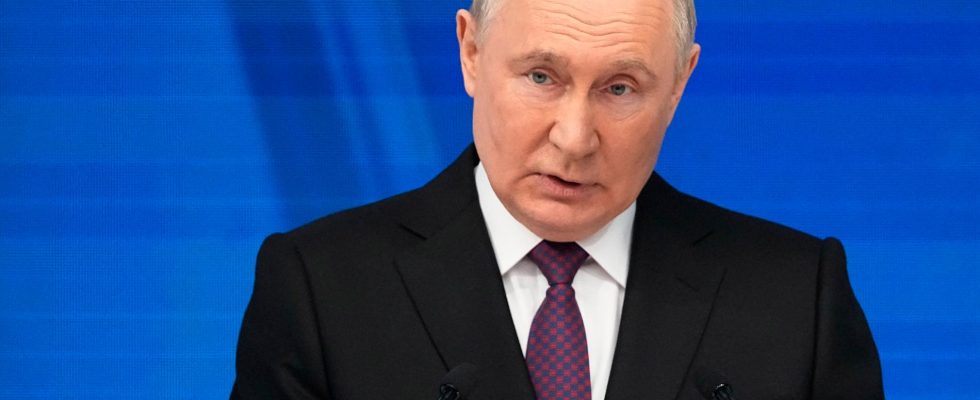unsaveSave
expand-left
full screen
chevron-rightnext
Russian President Vladimir Putin. Archive image.
1 / 2Photo: Alexander Zemlianichenko/AP/TT
When Russia goes to the polls, the winner is a foregone conclusion. All opponents of President Putin are out of the way – struck off the ballot, imprisoned or dead.
Historian Orlando Figes predicts a dark future for the country.
– Society needs to be de-Putinified, he says.
Vladimir Putin is running for the post of President of Russia for the fifth time.
A walk-off victory is expected in the election, which runs from Friday to Sunday, when all potential challengers are erased from the electoral rolls. Some have been banned from running or are in exile abroad. Others are imprisoned or dead – like opposition leader Alexei Navalny, who died in February under unclear circumstances in a penal colony in the northern Urals.
The British historian Orlando Figes, whose book “The History of Russia” has just been published in Swedish, believes that the elections in Russia today play the same role as they did under Stalin in the Soviet Union.
– It’s like a kind of reverent ritual. It’s something that looks good, says Orlando Figes.
– Mock elections are the new fashion in authoritarian states.
Media are silenced
Since Russia’s full-scale invasion of neighboring Ukraine just over two years ago, the country’s already authoritarian regime has hardened further. Demonstrations have been banned and so have organizations working for a free Russia.
Many of the independent media are classified as foreign agents and have been forced to close, move abroad or adapt their operations to current laws, where words like “war” are completely banned.
The fact that the Russian population does not dare to say what they think and feel, even to people they know, is due to structures in Russian society, according to Figes. Oppression exists at all levels and thus also the fear of expressing oneself freely.
– The people deserve better than this regime, but I’m afraid that my view of the future is bleak.
Fundamental change
In order for a future Russia to ever be free, a total structural change is required, he believes. This is because the authoritarian legacy is so deeply rooted in the system.
– A new leader would at best be a “Putin light” and the social problems would continue.
– A revolution is needed. Not only a political revolution but also a cultural one. The regime needs to fall and society needs to be de-Putinified, says Orlando Figes.
